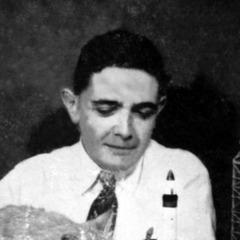Martin Farquhar Tupper Quotes - Page 5
Martin Farquhar Tupper (1857). “Complete poetical works: containing: Proverbial philosophy, A thousand lines, Hactenus, Geraldine, and miscellaneous poems. With a portrait of the author”, p.41
Deceit and treachery skulk with hatred, but an honest spirit flieth with anger.
Martin Farquhar Tupper (1857). “Complete poetical works: containing: Proverbial philosophy, A thousand lines, Hactenus, Geraldine, and miscellaneous poems. With a portrait of the author”, p.51
Martin Farquhar Tupper (1860). “Tupper's Complete Poetical Works: Containing "Proverbial Philosophy," "A Thousand Lines," "Hactenus," "Geraldine," and "Miscellaneous Poems"”, p.257
Martin Farquhar Tupper (1860). “Tupper's Complete Poetical Works: Containing "Proverbial Philosophy," "A Thousand Lines," "Hactenus," "Geraldine," and "Miscellaneous Poems"”, p.185
Martin Farquhar Tupper (1849). “Poetical works”, p.215
Humility mainly becometh the converse of man with his Maker.
Martin Farquhar Tupper (1867). “Proverbial Philosophy: (the First and Second Series)”, p.57
Martin Farquhar Tupper (1849). “Proverbial philosophy: a book of thoughts and arguments, originally treated”, p.115, Philadelphia, E. H. Butler & co.
Martin Farquhar Tupper (1867). “Proverbial Philosophy (the First and Second Series) by Martin F. Tupper”, p.231
Martin Farquhar Tupper (1849). “Tupper's Poetical Works: Proverbial Philosophy, A Thousand Lines, Hacterus ... : with a Portrait of the Author”, p.49
Martin Farquhar Tupper (1839). “Proverbial philosophy: a book of thoughts and arguments”, p.27
Martin Farquhar Tupper (1839). “Proverbial philosophy: a book of thoughts and arguments”, p.45
Martin Farquhar Tupper (1855). “Proverbial Philosophy: A Book of Thoughts and Arguments, Originally Treated : First and Second Series, Complete in One Volume”, p.53
Martin Farquhar Tupper (1848). “Hactenus: more droppings from the pen that wrote 'A thousand lines'.”, p.3
Martin Farquhar Tupper (1851). “Proverbial philosophy”, p.202
Speech is reason's brother, and a kingly prerogative of man.
Martin Farquhar Tupper (1851). “Poems of King Alfred”, p.80







